The Six Types of Online Communities (with Examples of Each)
An online community brings together people who wouldn’t normally connect with each other in the real world. Businesses, creators, and brands alike are all realizing the power of creating community in the digital landscape. While it’s tempting to think communities are alike, not all look the same. There are a few different types of online community to keep in mind when you’re looking to build one.
They are:
- Brand Communities
- Support Communities
- Learning Communities
- Networking Communities
- Social Communities
- Fan Communities
Ready to learn more? Let’s begin!
Communities Don’t Fit in a Box
That’s right. Just like people, communities don’t fit nicely into categories. While we’re going to make some broad categorizations of types of communities in this article, it’s important to remember that each community is different because the people that make it up are unique. A community may fit into the brand category, but also be a support community because the needs of its members call for it. These kinds of crossover or hybrid communities are common. Just remember -- the needs of your community define its structure and approach.
Groups tend to form around leisure activities, building relationships, fixing something, self-improvement, or some mix of these. From these high-level archetypes, we’ve defined six main types of communities to help you decide which path to take in your community building adventure.
Brand Communities
Brand communities are, you guessed it, associated with brands. It’s not just about a place for people to talk about your company or thing, however. Your brand community is a group of people who have an emotional connection to what you do as a company. They love your work. Typically, brand communities form to bring like-minded people together around a defined brand identity.
If you’ve ever heard Kevin Kelly’s idea of 1,000 true fans, brand communities draw these true fans together and help those on the path to becoming one. It’s no secret why customer advocacy efforts go hand-in-hand with building a community of this nature.
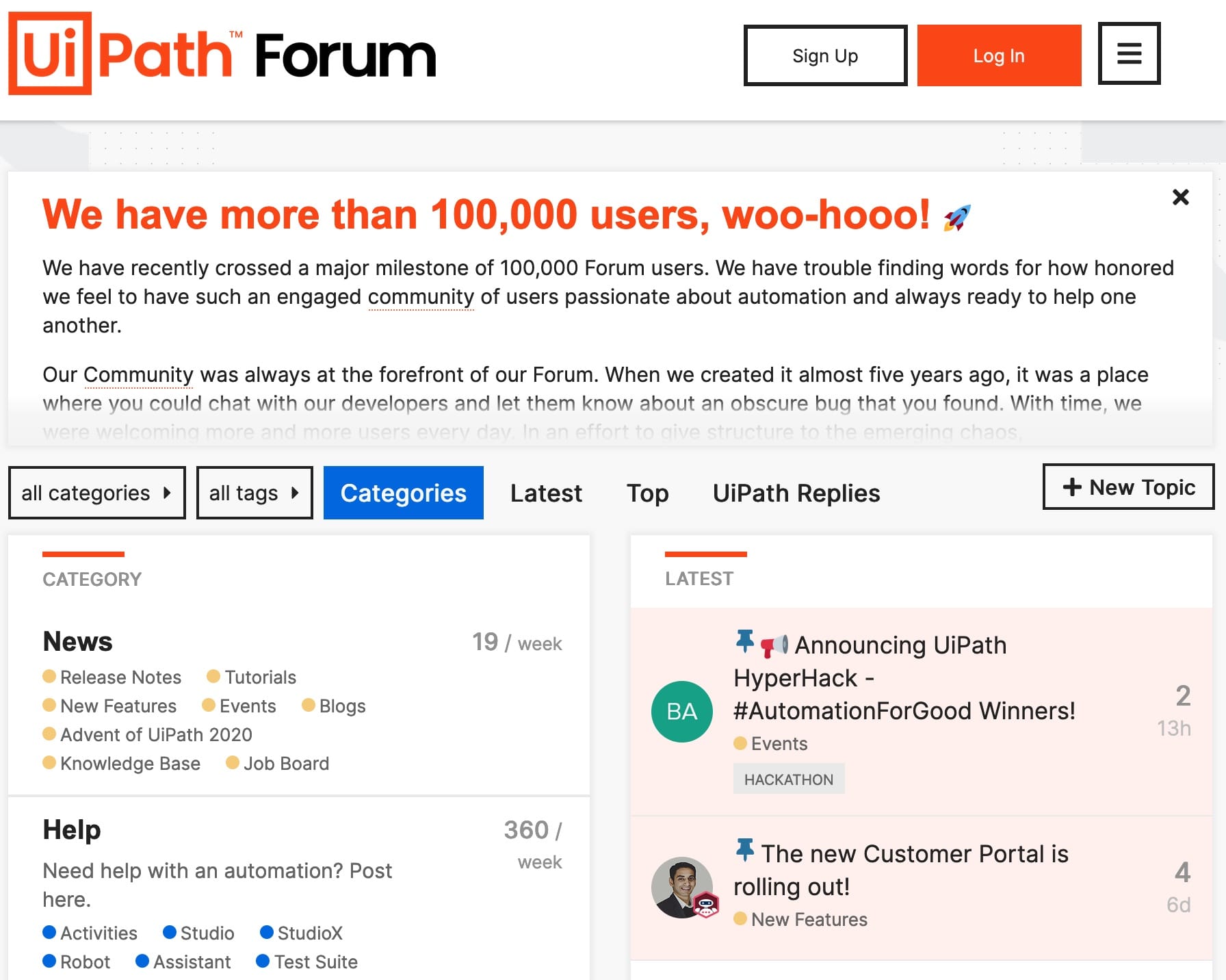
UiPath have been building a brand community since 2016, and over that time, they’ve been able to empower over 60 MVPs, enabling a strong advocacy program right from the community itself.

News and media communities also fall into the brand community category, as engaged readers connect to the perspective you’re sharing (and usually love to share their thoughts, too). Boing Boing’s BBS is one such place with over 2.9 million posts on a wide variety of topics discussing the zine’s take on the world.
Support Communities
Searchable public information is often a key factor for buyers making a purchase decision. 53% of shoppers research what they want to buy to make sure they’re making the best choice. Many of these types of discussions take place on social networks. Instead of leaving this job to Reddit or Quora, why not host where these discussions happen yourself? You know your product best, which means your company is the most helpful resource for your customers.
A support community is where people go to seek advice on purchasing decisions or to get support for what they’ve already purchased. From questions about which tier to buy, making feature suggestions, and wondering how to fix certain problems, a support community offers a thoughtful public space for your customers to get the help they need.
A major benefit of a group like this is they’re indexed by search engines. Once a member answers a question, the solution is available for anyone else to see by typing a few words in on Google. This scales more easily compared to traditional support processes because your team doesn’t have to answer the same question over and over. Instead, your support staff can point to existing discussions, or, if the customer has done some research on their own, they might not even need to ask because they found the answer already. If you're interested in learning more, we've written up a guide on how to handle search engine optimization for your community.
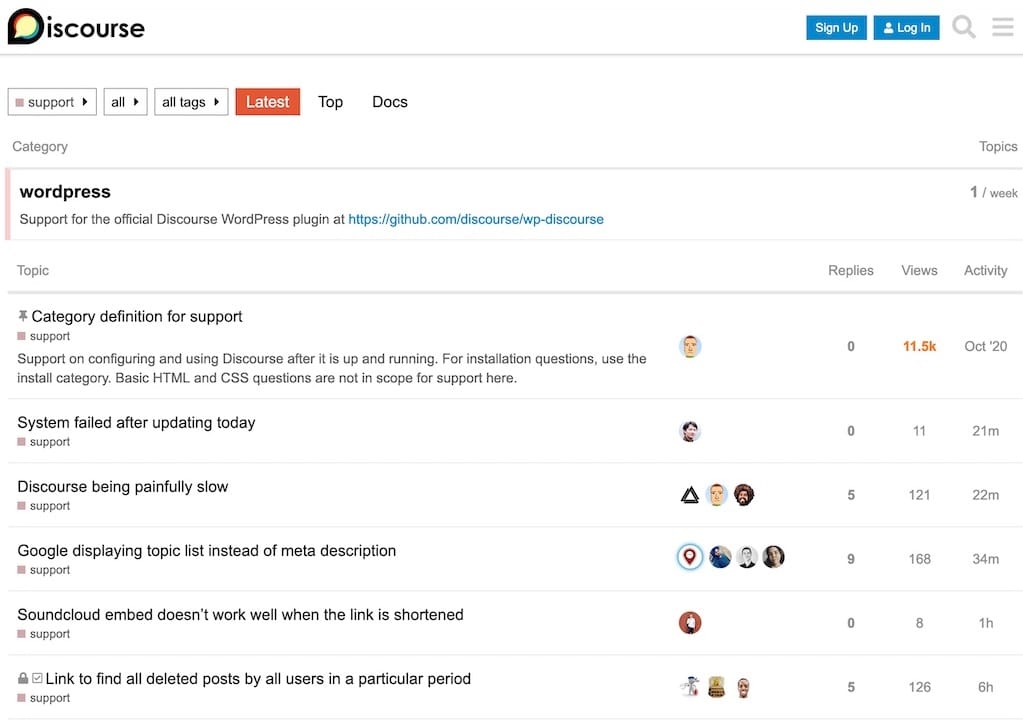
Our own Discourse Meta is one such example of a support community where our customers talk about a range of topics around our community platform, including asking for support, hiring developers, and making feature requests.
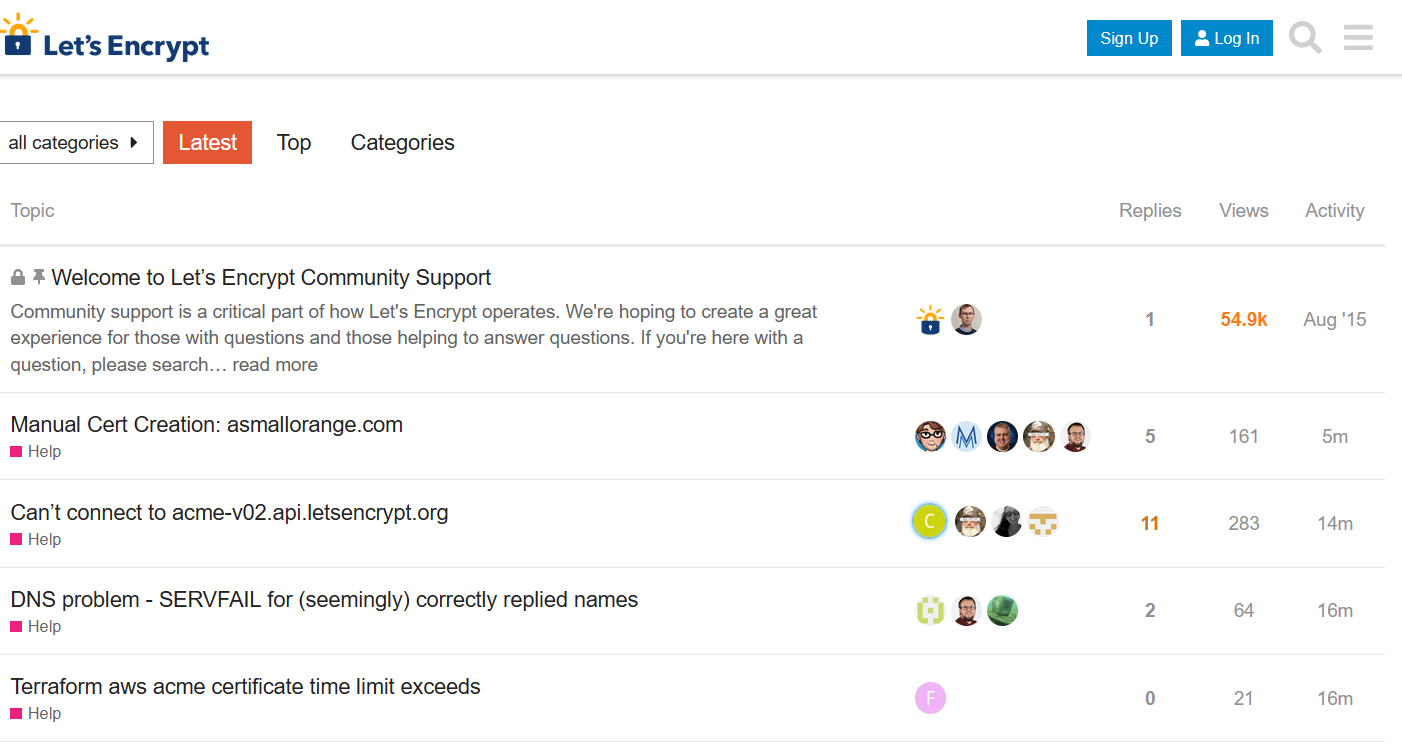
Let’s Encrypt uses a support community to offer help to over 40% of the world’s internet. The free SSL certificate service uses a forum to provide support and share important information with those using their products and services.
Learning Communities
People who are looking to learn often want to do so with others. There’s no better way to learn by asking questions, sharing ideas, and getting feedback than in a community. This is where learning communities come in.
A learning community is a group of students, teachers, and staff who come together sharing similar goals for the growth of knowledge. This may look like a college course where students are learning at the same time in the community, or it may be self-paced where the community is where students come to discuss what they learn after the fact.
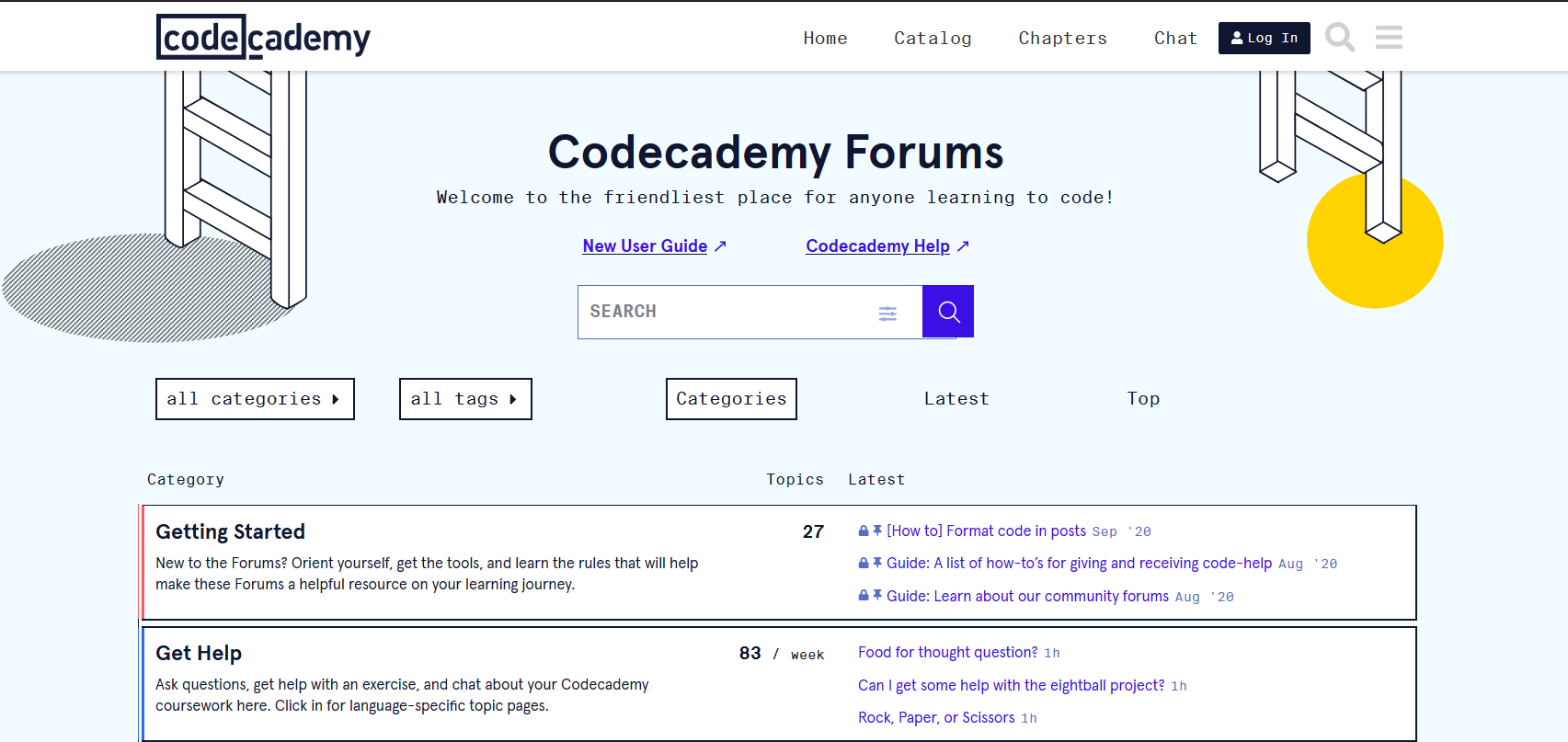
Codecademy is a premier example of what a learning community can be in an online space. Students take courses at their own pace, but along the way they can join the community, ask questions, and get help with the shared goal of becoming better software developers.
We had a great talk with Fede Garcia Loca of Codecademy at Bevy’s 2021 Partner Spotlight if you’re interested in hearing more about how they run their learning community platform.
Networking Communities
Networks are all about connection. In an online space, sometimes people like to come together to connect with others who are like them. This is where a networking community, also called a community of practice, comes in. A networking community is focused on connecting one person to another for a specific purpose.
Business networking is one type of networking community, where members look to connect with other like-minded people in their industry or profession. Communities of support are also a type of networking community, as individuals seek connection with others affected by the same circumstances such as a chronic illness or condition.
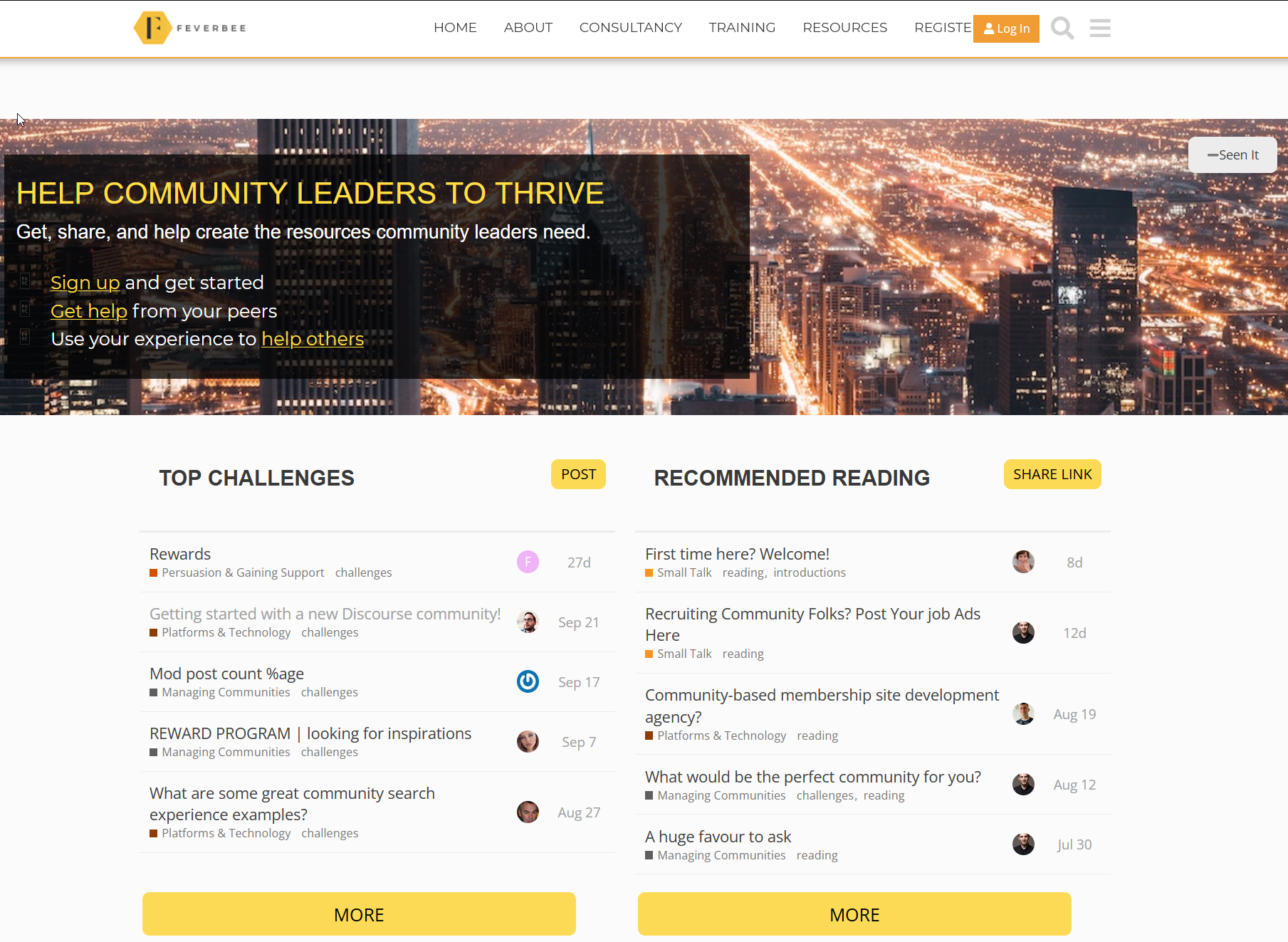
Feverbee Experts is a community for community professionals to connect with one another, share ideas, ask questions and get help in building their community. Even though they’re the professionals, community managers need a space, too!
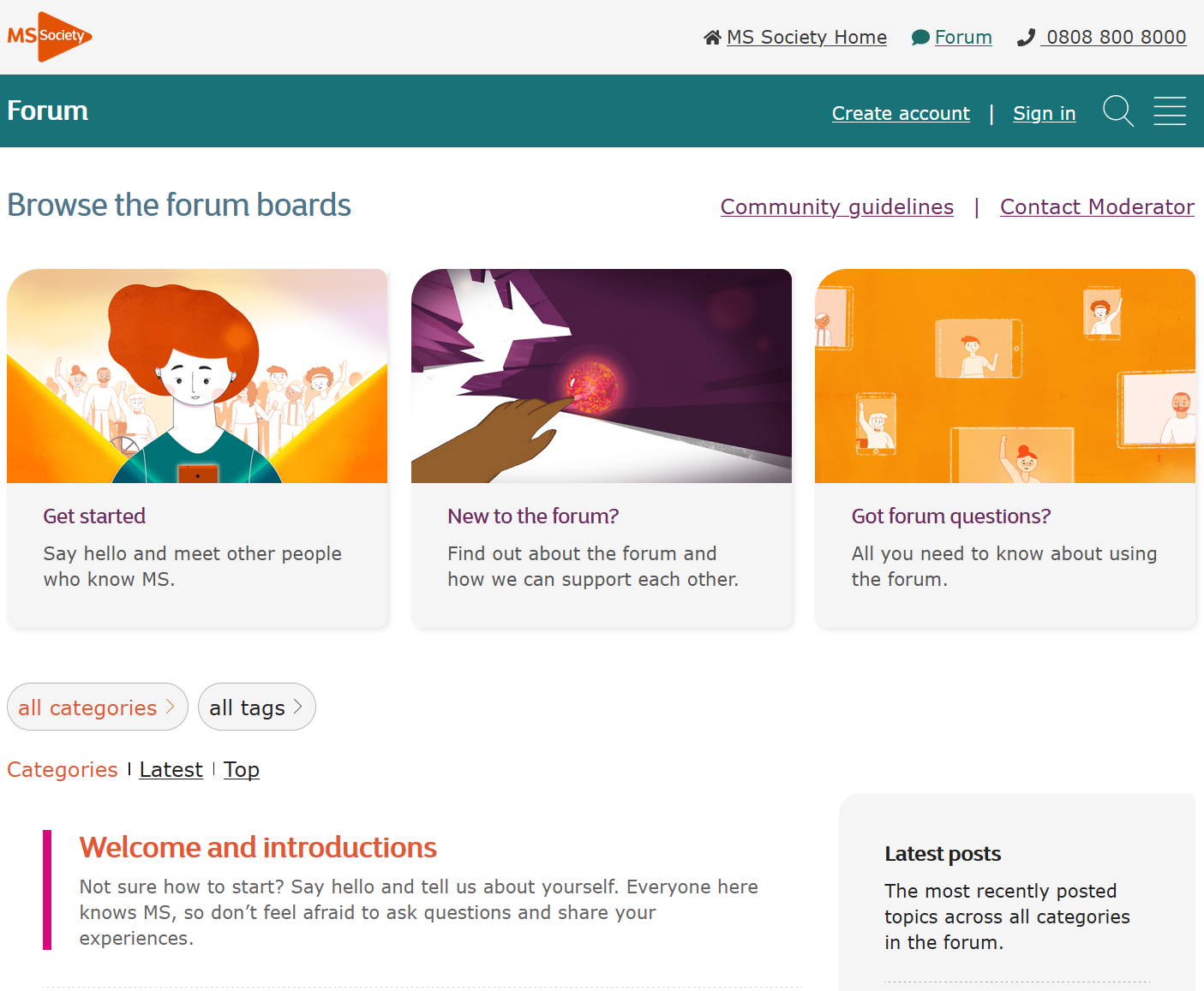
Giving those dealing with the challenges that come with a multiple sclerosis diagnosis a place to find support is the point of the UK Multiple Sclerosis Society’s community.
Social Communities
When I think of an online community, I often think of the forums of the late 90s/early 2000s. Before social networks, these were the social gathering points on the web where discussions took place about politics, video gaming, music, and the little parts of life. This, in essence, is what a social community is. The members of these communities come together to discuss whatever they want to socialize. Think of this as a sort of cocktail party or in-person meetup.
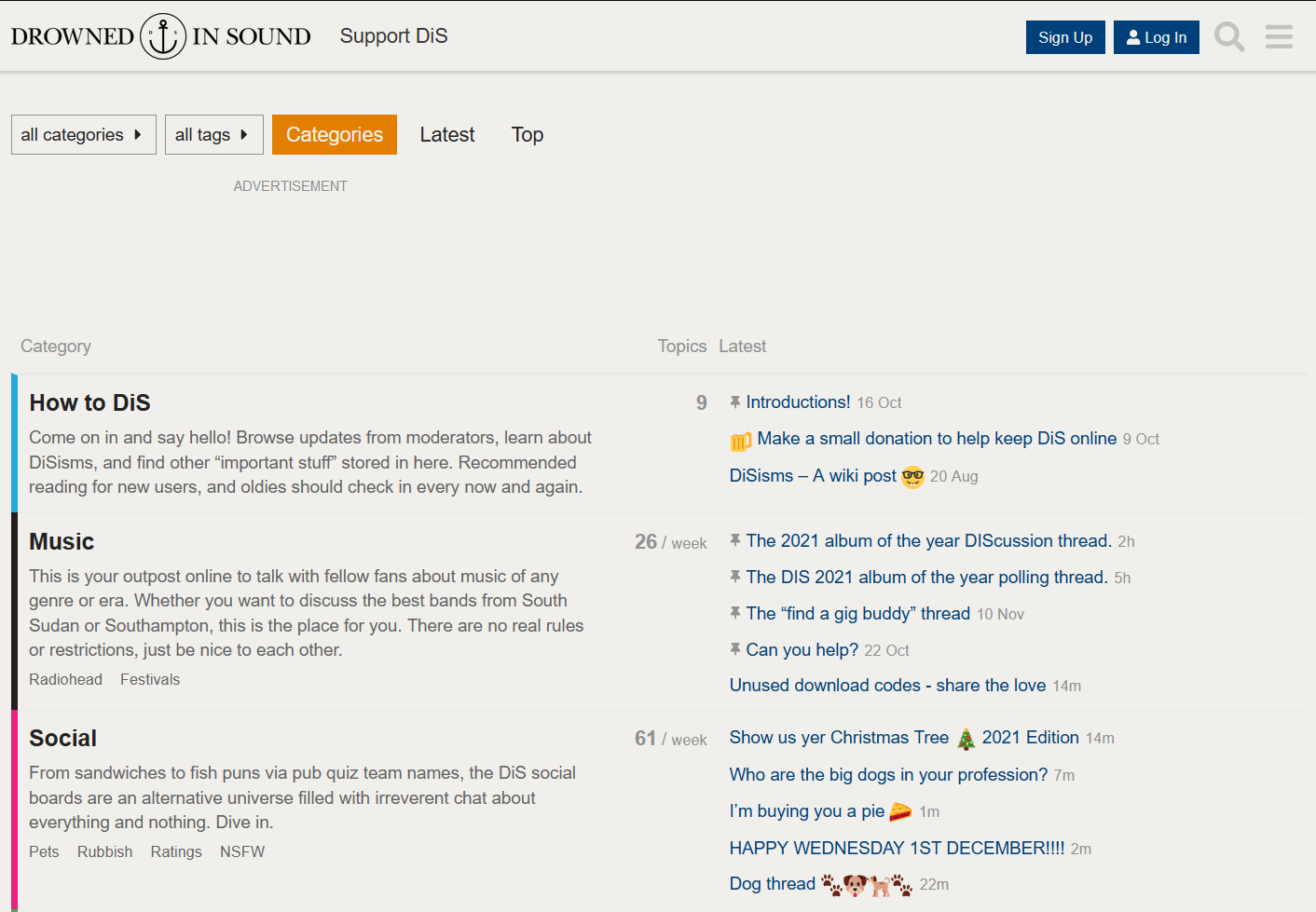
Drowned in Sound is one of my favorite examples of a social community. Ever want to talk about your favorite bands with other passionate music lovers? A social community like Drowned in Sound fits the bill, but also expands into other topic areas its members are interested in.
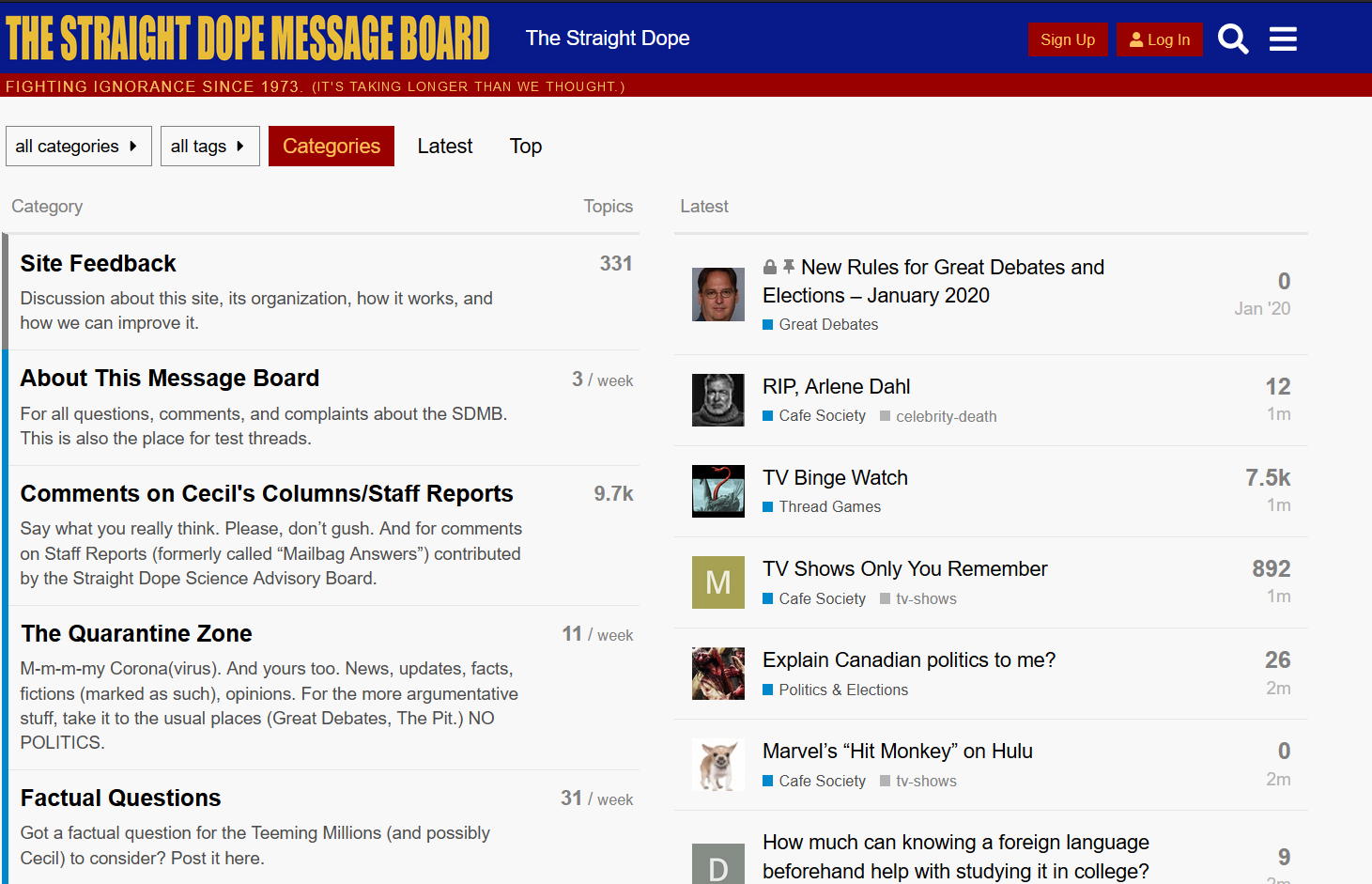
One of the oldest continuing forums on the Internet is The Straight Dope Message Board, a forum born from Cecil Adams’ long-standing column in the Chicago Reader. It’s another shining example of a social community where you’ll find discussions around nearly any topic. Fun fact -- our CEO Jeff Atwood originally shared the idea for Discourse on The Straight Dope’s old forum, which is now actually running on Discourse.
One of the cooler things that's happened in my life: Straight Dope, the Ye Olde Forum I referenced in my 2013 blog entry announcing @discourse -- eventually switched to Discourse! https://t.co/IWRJx7DtX4 pic.twitter.com/J0QzSWClLe
— Jeff Atwood (@codinghorror) March 17, 2021
Fan Communities
Fan communities, including fandom, have exploded in recent years. These types of communities usually form around favorite books, movies, and other media. They can also form around a favorite creator, such as a musician, artist, YouTuber, or streamer. While fan communities can be public and open to anyone participating, increasingly creators are making private communities for those who support their work through channels like Patreon.
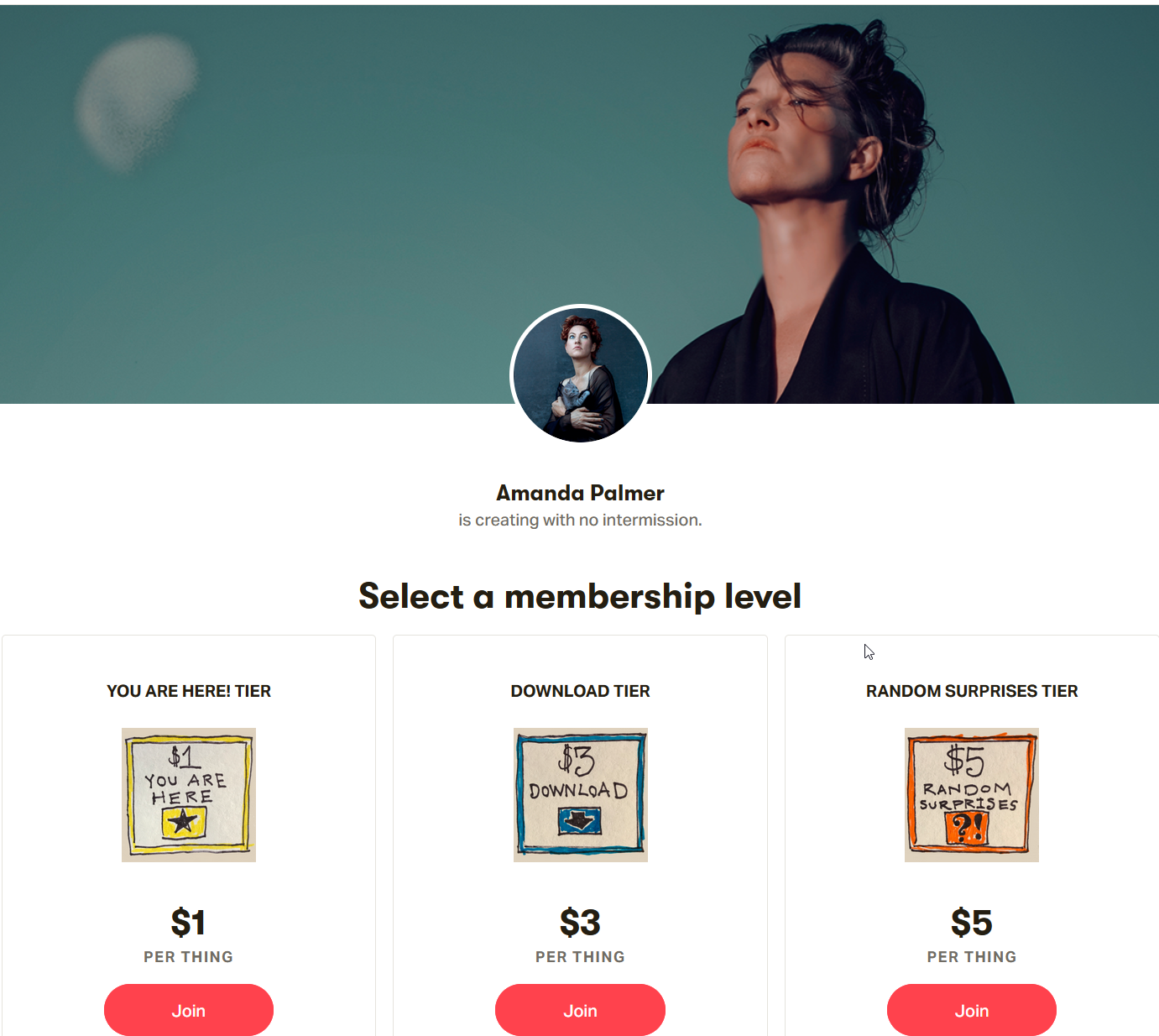
Amanda Palmer’s community is a closed group solely for her patrons on Patreon. With over 12,000 patrons from her crowdfunding efforts starting in 2015, her group has become a prime example of how a creator can build a community from a fanbase.
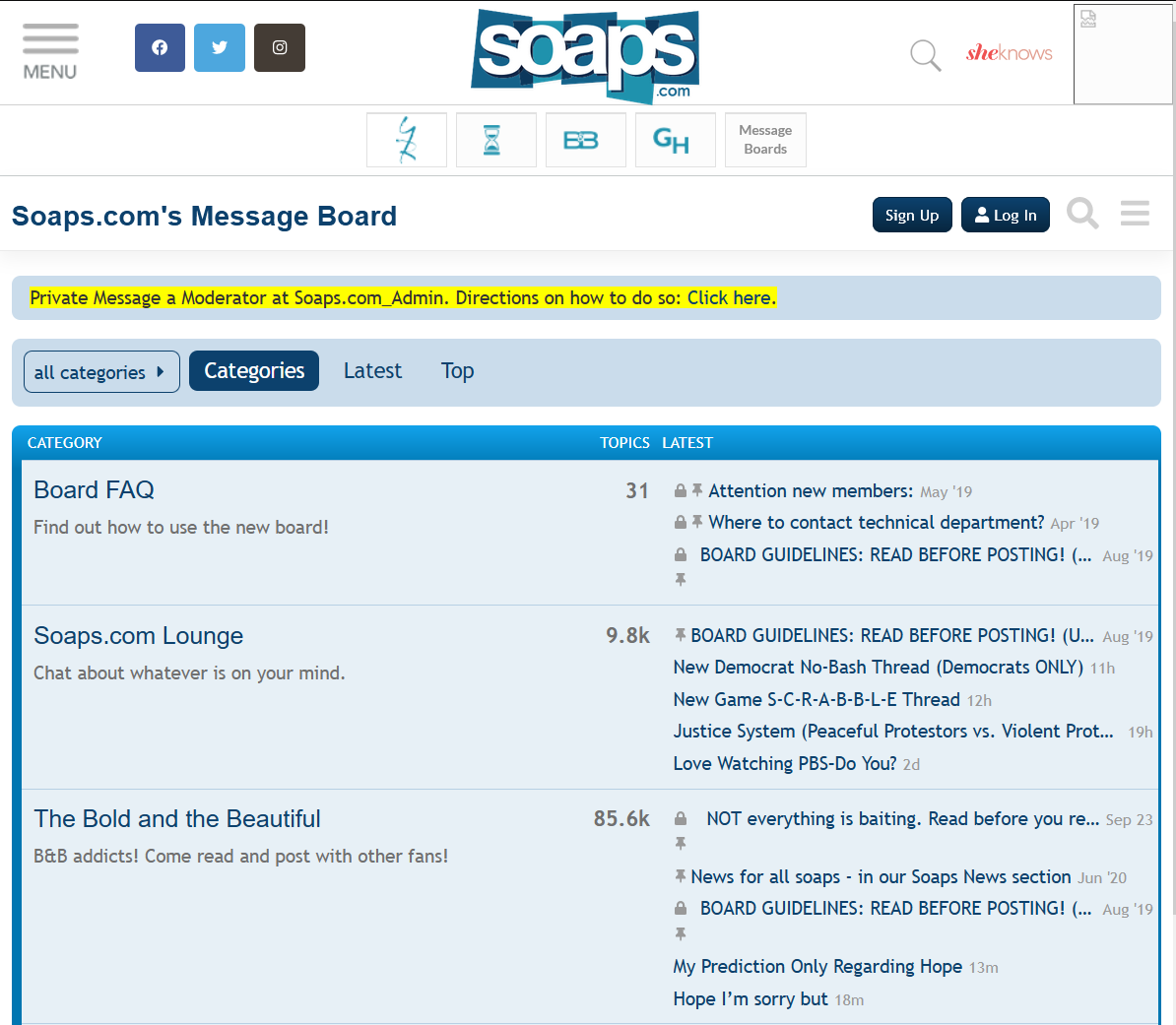
Soaps.com is another fan community where lovers of soap operas come to discuss the latest hot drama of the week on their favorite show.
What are You Building?
While communities are like people in that they don’t fit perfectly in a box, you can use these types as a framework for thinking about how to best help your community members. Your group may strictly be for fans, or it might be a hybrid brand/support community. What’s most important is to find a model that works for those you seek to serve.
So, with these types in mind, what are you building? Let us know in the discussion linked below.
